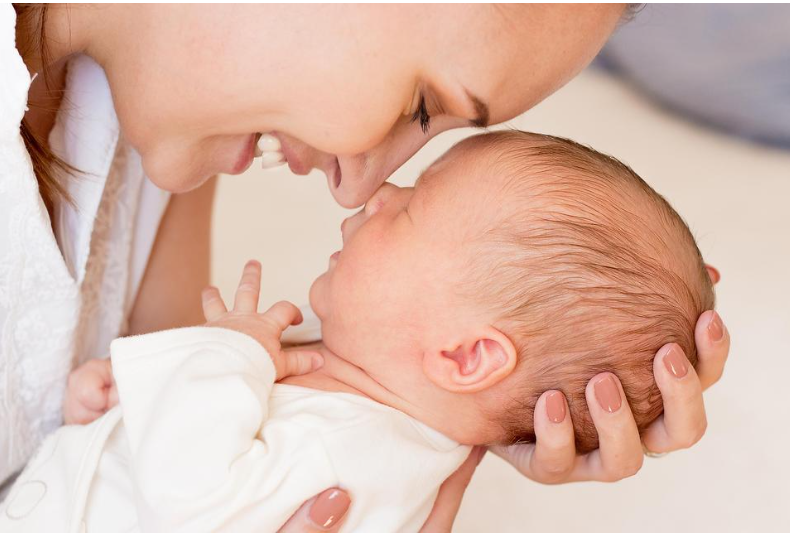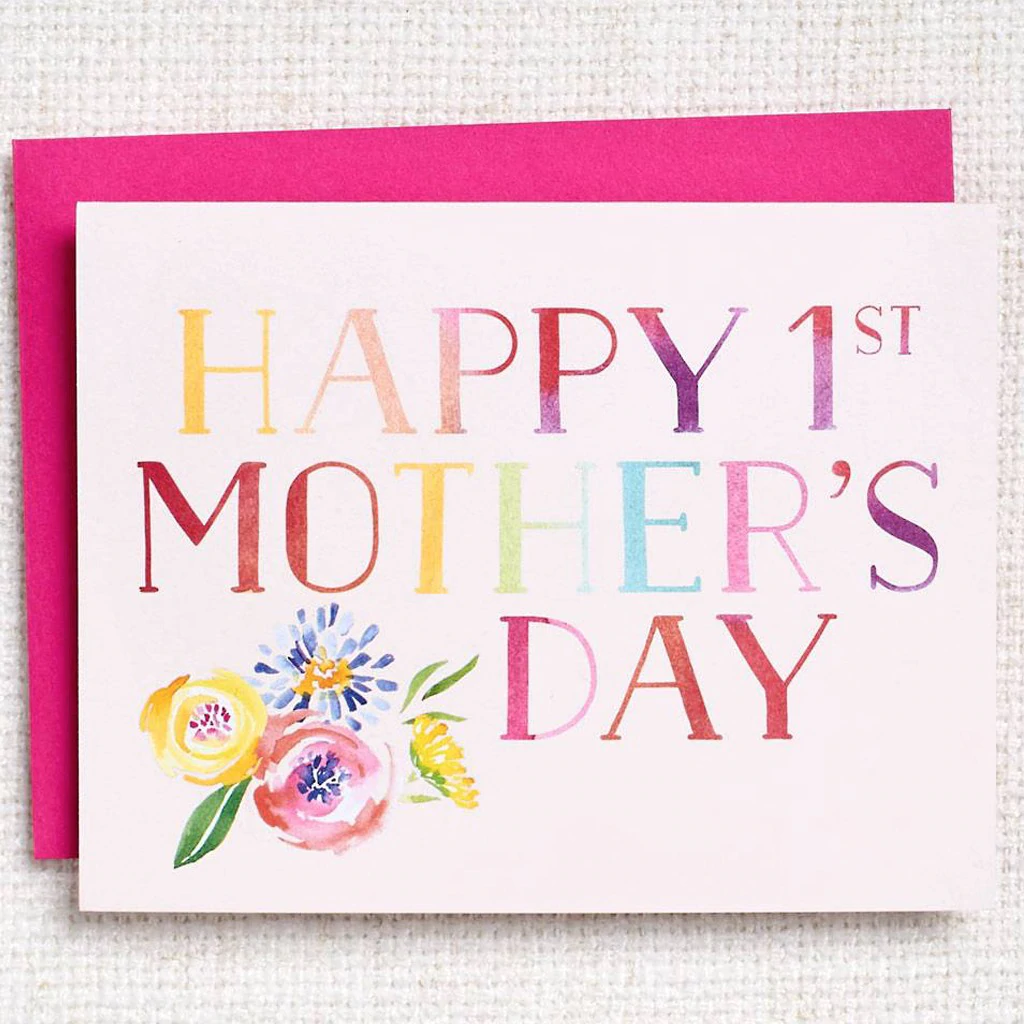Motherhood is so many things! Bringing the baby home is just the beginning of the lifelong bond as mother and child. Those early days are treasures she’ll hold onto for the rest of her life as a mom. Immediately a new child is born, which means a new mother is also born, and a lot goes through such a moment.
It’s a journey unlike anything else, and when it’s your first time doing it, no amount of parenting books, advice, or classes can prepare a new mom for all that she’s about to experience. And while you are still perplexed by excitement and tension as an upcoming mother, read on this article for an inspiration of all it takes to be a mother.
The Emotional Rollercoaster
Becoming a mother is a complicated life transition. That postpartum feeling of being on an emotional rollercoaster, not recognizing your body in the mirror, and thinking that you’ve lost yourself is all part of the process. It is just important to have guidance for new mothers on how to get their footing, manage expectations, get support, and prioritize time for themselves.
Taking care of a newborn baby can be exhausting and overwhelming, especially for first-time moms. Add to it some raging hormones and the everyday responsibilities that most women have… it’s a ticking time bomb. Sometimes the hardest part of motherhood is dealing with our own emotions.
I feel like there is a degree of guilt that moms face when they don’t feel that endless amount of happiness every minute of the day. It’s not easy, and we should stop pretending like it is. We don’t need to feel guilty about not loving every minute of motherhood. Here are anecdotes that can clearly illustrate these mixtures of emotions.
1. “Parenting is raising a child to be the best they can be. Being a mother is different: it means providing that indescribable feeling of comfort, no matter the age of the child. It’s being that person you call on that makes you feel better and doesn’t even need to say anything.”
2. Being a mom means that “sacrificing my body, my time, my finances, my sleep, and my mental health to raise my kids will be worth it in the end, because life isn’t about me anymore. I just hope my kids survive my weaknesses and realize I love them more than anything.”
3. “Realizing you’re responsible for another human being can be scary. New moms struggle with anxiety over several things, from fear of something happening to the baby to not making enough breast milk. The best thing you can do is accept help from your partner, family, and friends — even if they’re not doing things the same way you do — and then rest and recharge while someone else is caring for your baby.”
The Physical Transformation
You should have noticed that motherhood changes you inside and out. After having a baby, your clothing size, breast shape, hip width, and even your shoe size might be different. These changes are evidence of the work your body has done. As you adjust to your new life with a baby, it’s important to remember that your mind and emotions are also changing, so be sure to give yourself the support you need.
Let me encourage you with reality; Beyonce, Kim Kardashian, and Serena Williams all showed off their slim postpartum bodies just months after giving birth. If they can get their pre-baby figures back in a snap, why can’t you? While it’s normal to be frustrated with your postpartum body (especially compared to what you see in magazines), it’s also important to put it in perspective.
It’s unrealistic to compare yourself to celebrities who have personal trainers and personal chefs. Your body changes over time; it takes a while to get close to your pre-pregnancy shape and size. What’s reasonable? Expect to naturally lose some weight before your first postpartum doctor’s visit (usually around six to eight weeks after giving birth). After that, if you stay within your doctor’s recommendation for pregnancy weight gain, it’s still normal to have 10 to 15 more pounds to lose in the months ahead.
The Learning Curve
Despite the need for a newfound patience and unwavering zen as a mom, we are still human. We all get frustrated at times, and very little is more irritating than trying to appease an angry child who can’t tell you why they are angry in the first place. Are they thirsty? Tired? Do they just want the commercials skipped during “Baby Shark”? Trying to decipher why your kid is pissed off is similar to taking a never-ending multiple-choice test, with the stakes potentially being very bad for your hearing.
When my first baby decided to display her highest range of emotions while demanding something in baby language, I was guilty of shrieking, “What do you need?!” in my most aggravated tone. However, one look into my daughter’s big brown eyes instantly makes the stress melt away. I am reminded that I am dealing with a pint-sized person who gets frustrated a lot more quickly than I currently do—and she is new to figuring out how to regulate and communicate her emotions in this new world.
The Shift in Identity
Becoming a mother is a beautiful, life-altering event. However, motherhood can also be gritty and intensely challenging. It can make you question everything you thought you knew about yourself. Motherhood forces you to take a deep look at who you are as a person, laying bare your flaws and showing the ways past traumas are still impacting you. It necessitates the shifting of a person’s identity. What once was – your priorities, your thought processes, your way of life, who you are as a person – all go through deep and fundamental changes.
Being a mom teaches you to set expectations aside. The discovery that things rarely go according to plan is often one of the first lessons of motherhood, whether in the delivery room or at an adoption table. Working moms discussed the feelings of constant failure that surrounded everything they did. No matter how hard they tried to juggle all the balls, they felt they couldn’t quite give 100% to any one area of life. Their job no longer took top priority, and while for many it still provided a source of satisfaction and pride, it was also draining and took time and energy away from raising their children and being with family.
Stay-at-home moms also struggled. Many of them mentioned how much they had heavily identified with their career before motherhood. Once that career no longer defined them, they felt unanchored and a bit lost. Some of the moms I spoke to struggled with this and ultimately sought out a part-time job or “side hustle.”
Regardless of whether a parent opts to continue with their career, stay at home, or change jobs in some capacity, becoming a parent will fundamentally change certain aspects of one’s professional life.
Society’s expectations of mothers combined with our expectations of who a mother should be and what a good mother looks like directly impact our shifting identity.
For better or worse, I feel like we were the generation that was told we could do it all and have it all. But no one told us, or perhaps no one even knew, what the cost of having it all and doing it all would come with – physically, mentally, and emotionally.
The Power of Connection
Cultivating a robust bond with your child contributes to their ability to manage emotions, build positive relationships, and develop essential problem-solving skills. While there’s no manual for raising healthy and happy children, consider the following guidelines for forging a strong parent-child relationship.
Research shows that human babies are born very dependent on their parents. They undergo huge brain development, growth, and neuron pruning in the first two years of life. The brain development of infants (as well as their social, emotional, and cognitive development) depends on a loving bond or attachment relationship with a primary caregiver, usually a mother. There is increasing evidence from the fields of development psychology, neurobiology, and animal epigenetic studies that neglect, motherly inconsistency, and a lack of love can lead to long-term mental health problems as well as reduced overall potential and happiness.
Regardless, the most important thing for any new mom is that they have all the love and support they can get from their friends and family. And that they are reminded they are doing a great job, even when it might not feel like it. You can ask for help from the already mothers who have experience in such. A good example can be your mom, aunts, or grandma.
The Joy of Milestones
While my daughter couldn’t believe that she was finally propelling her little body upwards to start walking, I also couldn’t believe the danger zone we lived in! Hot tools on the bathroom floor, uncovered electrical outlets, uncapped pens everywhere, loose credit cards—you name it. While my daughter diligently practiced putting one foot in front of the other, I scanned every room she was about to enter for any potential danger. I had become my daughter’s secret service agent.
There comes a time when all kids will emphatically shake their head “no” at you. I just didn’t think that time would come before the age of one. Babies seem to require a lot of tricking into doing things—putting toys in their crib to draw them in, swiftly swapping their pacifiers out of their mouths for bottles, or desperately trying to replace digital screens with any other form of entertainment.
In the end, excitement, satisfaction, joy fun, and meeting a long-term goal is the mixture that can foster an advantage to your milestones. Remember, your child is a blessing: love and grow through your bond.
The Ongoing Journey
Being a mom is hard work, and when all your baby does is eat, poop, cry and sleep, it makes it hard to feel any sort of reward. I know… the reward is a beautiful healthy baby. But let’s be real for a minute, and help other moms out by being honest. In the many days to come, you will appreciate it.
You helped create another human being and might still be providing sustenance for your baby. Recognizing the physical changes as a part of an amazing time in your life is an important part of respecting the new you. It’s also normal to go through some emotional ups and downs as you adjust to parenthood.
The responsibilities that come with keeping a tiny person alive — frequent feedings, night wakings, and dealing with poop explosions — can be overwhelming. It’s natural to feel tired, let down, frustrated, or sad in the days following childbirth as your hormone levels fluctuate. Life after a new baby is not going to be the same. There is a steep learning curve in parenthood, but your new life will be filled with thrills and wonderful memories.
Conclusion
A new mother is an intriguing moment that inspires a new journey. From the emotional rollercoaster, the physical transformation, learning a curve, shifting your identity, the power of connection, the joy of milestones, and the ongoing journey is a sensational journey that will help you figure out like a new mother.
Adding on all these, breastfeeding your baby has so many benefits: It protects infants from illness, offers them perfectly balanced nutrition, and lowers your risk of breast cancer and ovarian cancer. But you require energy to make breast milk.
Nursing moms should eat an additional snack, such as a piece of fruit or a cup of yogurt, to get an extra 300 calories a day. Even with this additional food, breastfeeding will help you lose the baby weight as long as you’re eating a healthy diet and not overdoing it.
Also, you can gift the new mom this Personalized T-shirt & BabyRomper. The set includes a matching shirt for both the mom and the baby, featuring a cute Mama and Baby Bunnies design, which is an adorable way to celebrate motherhood.



